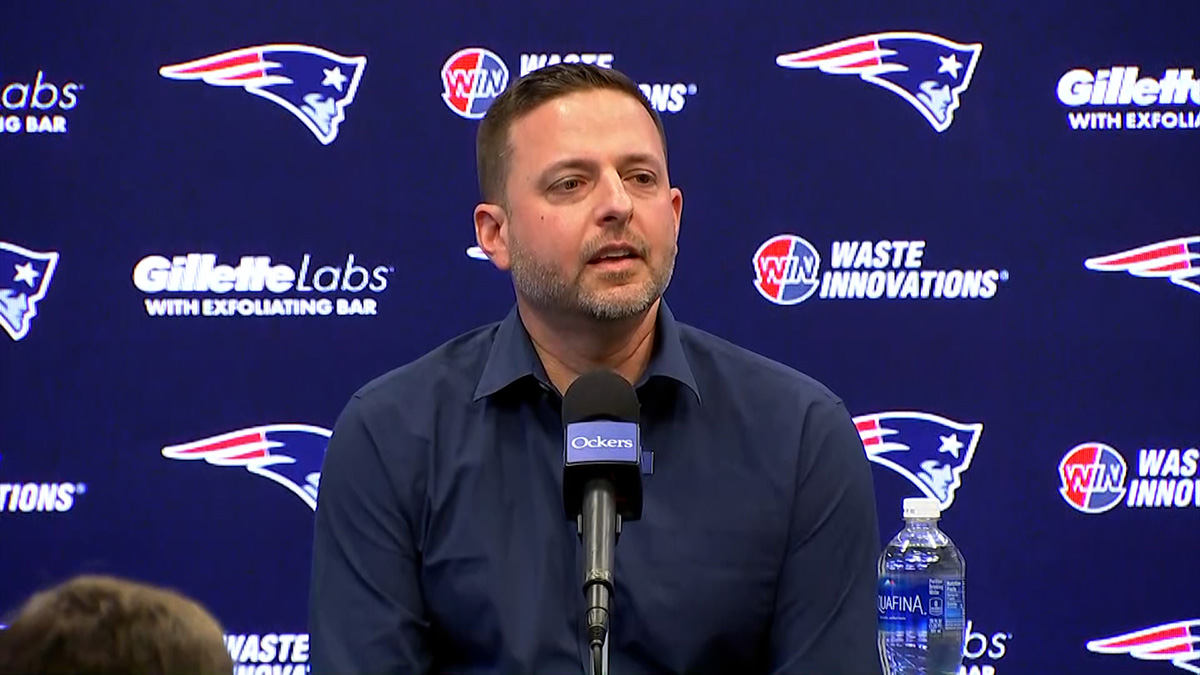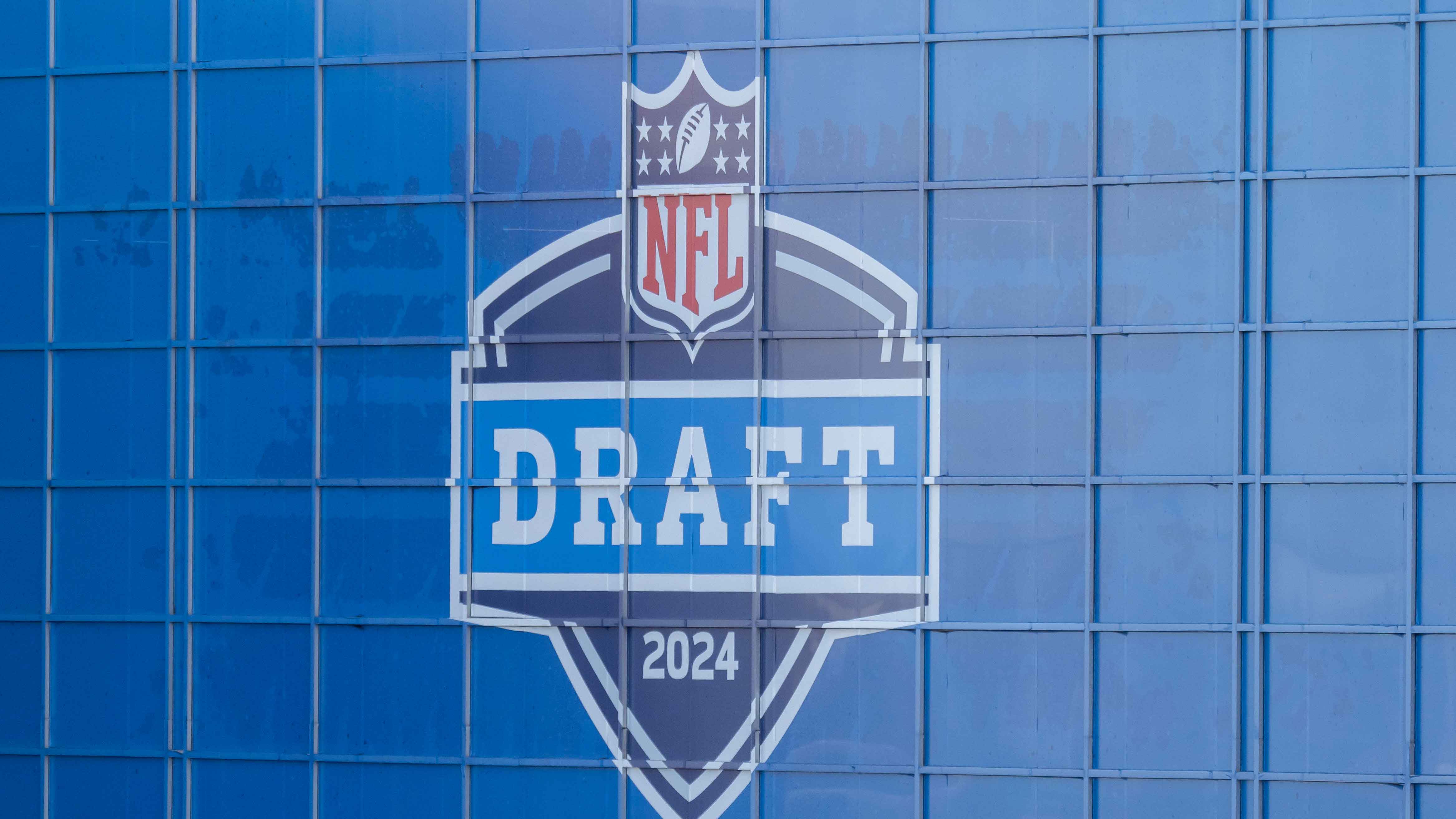The Eagles this year are devoting more than a quarter of their payroll to players who aren't Eagles.
So it goes with rebuilding teams that cut ties with overpaid, high-priced veteran players with long-term contracts.
Every NFL team deals with so-called “dead money.” The Eagles are just dealing with it more than any team in the league right now and more than all but a handful of teams in NFL history.
Stay in the game with the latest updates on your beloved Philadelphia sports teams! Sign up here for our All Access Daily newsletter.
Dead money is the direct product of a front office's poor personnel evaluations and a player's declining skills.
Give a player too much guaranteed money and you can be faced with a dilemma: Do you keep him on the roster when he’s wasting a spot or release him and wind up with a huge dead money charge on your salary cap?
Dead money, simply put, is guaranteed salary not paid to a player who’s been released or traded. The earlier in a contract a team gets rid of a player, the more dead money counts against the team.
The Eagles, for example, couldn’t release Alshon Jeffery last year because he would have counted a whopping $26 million against the cap. Depending when you release a player, the money can be spread out over two years. But either way, it has an enormous impact on your roster and personnel moves.
NFL
The more dead money you have, the harder it is to build a competitive team, because you have less available cap space to work with.
Which brings us to the 2021 Eagles.
According to figures on Spotrac, after final cuts last week they were charged with $50,041,688 in dead money, most in the league this year, seventh-most ever and sixth-most on a percentage basis of the year’s unadjusted cap.
Here’s a look at the top-five and bottom-five dead money totals in 2021, according to Spotrac:
Most dead money
$50,041,688 … Eagles
$48,051,675 … Lions
$45,634,297 … Panthers
$39,473,971 … Rams
$35,755,096 … Saints
Least dead money
$4,290,900 … Ravens
$3,240,871 … Browns
$2,380,126 … Buccaneers
$2,250,012 … Chargers
$596,187 … Colts
And here’s a look at the teams with the highest dead cap totals in NFL history:
$70,343,254 … 2018 Bills
$66,915,659 … 2019 Dolphins
$55,156,416 … 2019 Giants
$54,072,638 ... 2020 Panthers
$53,587,595 ... 2020 Jets
$50,898,166 ... 2019 Cards
$50,041,688 … 2021 Eagles
$49,890,275 ... 2020 Jaguars
$48,051,675 … 2021 Lions
$46,236,097 … 2017 Browns
Many of those teams have something in common: They got rid of a guy they thought was a franchise quarterback who they paid a fortune to. Like the 2019 Dolphins with Ryan Tannehill ($18.4 million), the 2020 Jaguars with Nick Foles ($18.8 million) and this year’s Detroit Lions with Matt Stafford ($19 million). The 2019 Cards had large cap hits from two QBs they unloaded — Josh Rosen ($8.2 million) and Sam Bradford ($5 million).
As was widely reported back in February, the Eagles absorbed the largest single dead money charge in NFL history when they traded Carson Wentz to the Colts. Wentz this year counts $33.82 million against the Eagles’ cap, which makes him the most expensive player on a team he’s no longer on.
Wentz’s dead money accounts for 16.34 percent of the Eagles’ total adjusted cap figure of $206,998,775.
His 2021 cap figure is about $10 million higher than any other Eagle. Fletcher Cox is second at $23.88 million.
Wentz’s dead cap charge is higher than 27 of 32 entire teams in the league. According to annual dead cap figures available on Spotrac, if Wentz were an NFL team, he would have the 25th-highest dead money total of any team in NFL history.
Only three other players have ever had more than a $20 million dead money hit. The second-highest in history is Jared Goff’s $22.2 million this year with the Rams. Wentz has that beat by more than $10 million.
But the Eagles’ dead money total is a lot more than Wentz.
DeSean Jackson ($5.8 million), Jeffery ($5.6 million) and Malik Jackson ($3.6 million) all have huge cap hits, and Wentz, Jeffery and the two Jacksons account for most of the Eagles' 2021 dead money.
But any player that gets any amount of guaranteed money and is released or traded counts against a team’s dead money total. Even if he re-signs with the team.
For instance, the Eagles released Hassan Ridgeway on Tuesday. Since he had $100,000 in guaranteed money on his one-year deal, he counts $100,000 in dead money.
The Eagles re-signed him on Thursday, but the $100,000 dead money remains.
Shareef Miller, a fourth-round pick in 2019 who played one snap in an Eagles uniform, still counts $243,264 in dead money, thanks to his rookie signing bonus.
Nick Mullens got a $200,000 signing bonus, so when the Eagles released him last week, that turned into $200,000 in dead money.
Jhamon Ausbon? Would you believe $73,333?
Even undrafted rookie camp long shots who get tiny bonuses contribute to the Eagles’ dead money total. Guys like Kayode Awosika, Raequan Williams, Elijah Riley and Michael Jacquet — all now on the practice squad — each count somewhere between $5,000 and $10,000 in dead money because they got bonuses when they signed and then were released.
In all, the Eagles have 32 players who count toward that $50.04 million figure.
And every time they release someone, that figure will go up.


